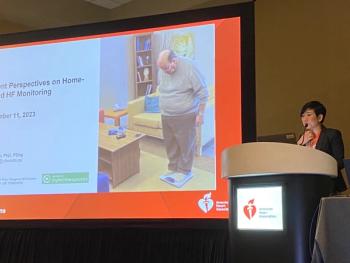
When Statins Aren’t the Answer, Bempedoic Acid Could Be
A study in statin-intolerant patients suggests that bempedoic acid reduces the risk of major cardiovascular events significantly.
As many as half of patients at risk for cardiovascular events do not receive lipid-lowering therapies, the researchers note. In a
Part of the problem, the researchers write, is that current recommendations are predominantly derived from clinical trials conducted decades ago during the initial development of statins to reduce low-density lipoprotein cholesterol. Moreover, recent data are limited on the effects of statins or other adjunctive treatments in patients who haven’t had a cardiovascular event, which is not surprising, when most cardiovascular outcomes trials of lipid-lowering therapies have only enrolled people who have already had a cardiovascular event.
These researchers conducted a prespecified subgroup analysis based on the
Related:
Statin-intolerant patients were randomly assigned to receive 180 mg
After six months of treatment, bempedoic acid, compared with placebo, reduced LDL-C levels by 30.2 mg/dL (21.3%) from a mean baseline of 142.2 mg/dL. After 12 months of treatment, it reduced high-sensitivity C-reactive protein levels by 0.56 mg/L (21.5%) from a median baseline of 2.4 mg/L.
During a median follow-up of almost 40 months, bempedoic acid reduced risk significantly for the primary end point (111 events [5.3%] versus 161 events [7.6%]). It also reduced the prespecified MACE (2.4%).
Approximately two-thirds of the participants in this study had diabetes. (Patients with diabetes have an
Though prespecified, this study reports on outcomes in a subgroup within a larger clinical trial, thus the researchers advise that the results should be “interpreted as hypothesis-generating rather than definitive evidence of benefits.”
Newsletter
Get the latest industry news, event updates, and more from Managed healthcare Executive.

























